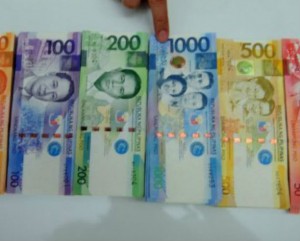Trust accounts’ reserve fund

The trust accounts that have gained wide acceptance among financially able Filipinos are unit investment trust funds (UITF) and mutual funds. Both consist of money collected from investors that are invested in bonds, stocks, debt certificates and other financial instruments that earn high yields or profits.
In mutual funds, the investor buys shares of stocks of an investment company; in UITFs, units of participation are purchased from a fund managed by the trust department of a bank.
By some legislative fluke, mutual funds are regulated by the Securities and Exchange Commission, while UITFs are supervised by the Bangko Sentral ng Pilipinas.
Despite this difference, both instruments have common features: Their managers impose certain fees for their services and, after a certain holding period, the investments can be redeemed by the investors.
If at the time of redemption the value of the shares or UITF has risen, their holders earn the difference between their investment cost and the redemption price. Too bad if the values have gone down, they have to bear the loss or decline in value.
Guarantee
When an investor puts his money in a UITF or mutual fund, he does so with the hope (and prayer) that the issuer has sufficient financial resources in its coffers when he decides to redeem his investment.
Unlike bank deposits of up to P500,000, investments in trust accounts are not guaranteed by Philippine Deposit Insurance Corp.
The lack of coverage is made clear to the investors before they put in their money and underscored in bold letters in the covering documents issued by the investment company or bank concerned.
This clarification is essential because the majority of issuers of mutual funds are affiliates or subsidiaries of banks, or otherwise identify themselves (through their corporate name) as part of a banking conglomerate.
In the case of UITFs, the fact that they are issued by banks gives the impression that the transaction is integral to the banks’ operation and therefore enjoys PDIC’s protective insurance coverage.
On this aspect, the bank enjoys the best of both worlds. Its trust department—which handles these instruments—is a significant component of its organizational setup.
Although the money collected from UITFs is not treated as part of its assets, the bank has easy access to it to meet the funding requirements of its investment and lending activities at, you guess it right, “friendly” rates.
Protection
But if, by some quirk of fate, the investments in which the trust department placed the proceeds of its UITFs fail, the investors would be left holding the proverbial empty bag.
They cannot run to PDIC to recover their money. Their UITF investments are not in the nature of bank deposits, even if within the P500,000 threshold, that PDIC is obliged to pay back in case a bank goes under.
And rightly so because banks do not pay insurance premium on UITF investments solicited and invested by their trust departments. The premiums paid by banks for bank deposits are factored in or included in their computation of interest rates and the fees imposed on various banking transactions, other than those that relate to UITFs.
Understandably, no bank managed by honest and competent executives would want to see the investments of its trust department hit the skids. The latter’s failure would adversely affect its reputation in the public eye, something no bank would want to suffer if it wants to remain in business.
The same situation applies to investment companies that are identified with or affiliated with banks. Mutual fund investments that do not live up to the profit expectations of their investors will reflect badly on the financial savvy of the mother bank.
Fund reserves
The recent announcement of the BSP that it is considering the possibility of imposing reserve requirements on trust accounts is laudable.
Although there have been no reports lately of UITF or mutual fund issuers violating their fiduciary obligation to their investors, it is prudent for the regulators of these financial instruments to take the appropriate measures to protect investors from mismanagement of their investments or bad business judgment by fund managers.
Setting aside a percentage of the trust investments or profits earned from the operations of the UITF or mutual fund issuance would give investors a certain level of comfort that they may be able to recover part of their investments in the unlikely event fund managers fall short of their profit projections.
There is no need for legislative intervention to make the reserve requirement possible. Both the SEC and the BSP have sufficient authority under their respective charters to impose this requirement as part of their regulatory responsibility over these financial instruments.
By consulting the stakeholders in the trust account industry and getting their views on the matter, the regulators can come up with the parameters on the reserve fund that will protect the interests of the investors without unduly interfering in the exercise of the fund managers’ business judgment.
In formulating the rules on reserve funds, the regulators should learn from the lessons of the past when the same kind of funds in pre-need companies were used as private piggy banks of greedy pre-need company executives.
For comments, send your e-mail to rpalabrica@inquirer.com.ph.
